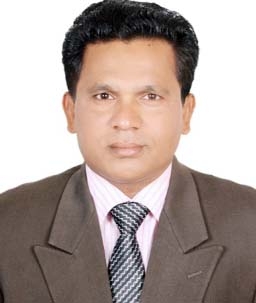
Dr. Md. Enamul Hoque :
The Covid-19 pandemic has created the largest disruption of education systems in history, affecting nearly 1.6 billion learners in more than 190 countries and all continents. Closures of schools and other learning spaces have impacted 94 percent of the world’s student population, up to 99 per cent in low and lower-middle income countries like Bangladesh.
The pandemic forced the government to postpone the exams, severely disrupting the academic life of the students. Around 21 lakh students are expected to take the SSC and its equivalent exams and 15 lakh the HSC and its equivalent tests this year. Last year, an HSC exam in Bangladesh was cancelled to help stop the spread of COVID-19.
The Covid-19 pandemic has had a major impact on high stakes exams around the world. There is still uncertainty of reopening the schools let alone conducting full-fledged public examination. However, the government has undertaken alternative method to evaluate the performance of the SSC and the HSC students this year regardless of the Covid-19 situation.
The government has taken decision to hold exams on three elective subjects. The students will not have to sit for tests in compulsory subjects like Bangla, English and Mathematics. Furthermore, the syllabuses of specific subjects have been shortened; and, the examinations will be held on abridged syllabuses of those three elective papers from each group: science, commerce and humanities. The exam of optional subject known as fourth paper will also be skipped. In addition, the total marks in each subject will be 50 instead of 100.
Some fresh decisions were also taken for SSC and HSC levels- the exams in each of the three optional subjects would be held for one and a half hours, instead of three hours; and the examinees would get more options to answer the questions. Earlier, students were asked to write down answers to eight out of 10 questions. This time, they will have to answer three or four out of 10 questions. Like previous years, examinees will have to answer both multiple choice and written questions.
As part of the exam, SSC candidates will have to submit 24 assignments in three optional subjects in 12 weeks. The HSC candidates will have to submit 30 assignments in 15 weeks. Students are required to do two assignments per week. Teachers will assess the assignments of their own students and put all information in the central data centre.
Not having an exam for a year may not cause huge damage; but, holding an exam wrongly can harm our education and students’ future. We should consider the merit of the exams, and the importance of examining subjects to a large extent. The compulsory subjects must not be ignored and skipped; Bengali, English, mathematics, religions and moral education are basic subjects of knowledge. The decision of holding exams on only elective subjects will not be proved as a wise decision.
As we know, the board authorities faced multiple difficulties and challenges in formulating the results of 2020 HSC examinees who changed group and whose elective subjects did not match with elective subjects at SSC levels. So, this year, giving tests on only elective subjects can merely reduce the difficulties of formulating and calculating the structural results of examinees; but, the aim of the assessment will not be fulfilled and achieved. It is not much better than “No Exam’
The authority must pursue qualitative outcome instead of quantitative calculation of results. The announcement of holding exams on elective subjects only triggered mixed reactions among the stakeholder, teachers, students and their guardians, saying-“If they can hold the exams in three subjects, why can’t they do so for all the subjects? Compulsory subjects are more important than elective subjects.
The examinations on the three elective subjects only are very close to “auto-pass” approach. It may make the results preparation easier for the board authorities; but, it would be very faulty in nature and utmost failure of understanding the importance of assessment on the basic compulsory subjects. So, exams should be held on compulsory, elective, and optional subjects on a limited scale or in a shorter version to produce acceptable results.
The government should re-consider the decision on holding examinations on elective subjects only; and they should hold full-fledged exams in shorter form as they have planned for the elective subjects only. We need to introduce counterbalance assessment for students. Context is then all important in making a decision. There is one further point to consider before we continue, and it is an important one; that we need to include all study subjects in our public examination to look learning outcomes of our learners.
(Dr. Enamul Hoque is educational researcher and teacher educator. He is ex- professor of English.
Email: [email protected])

